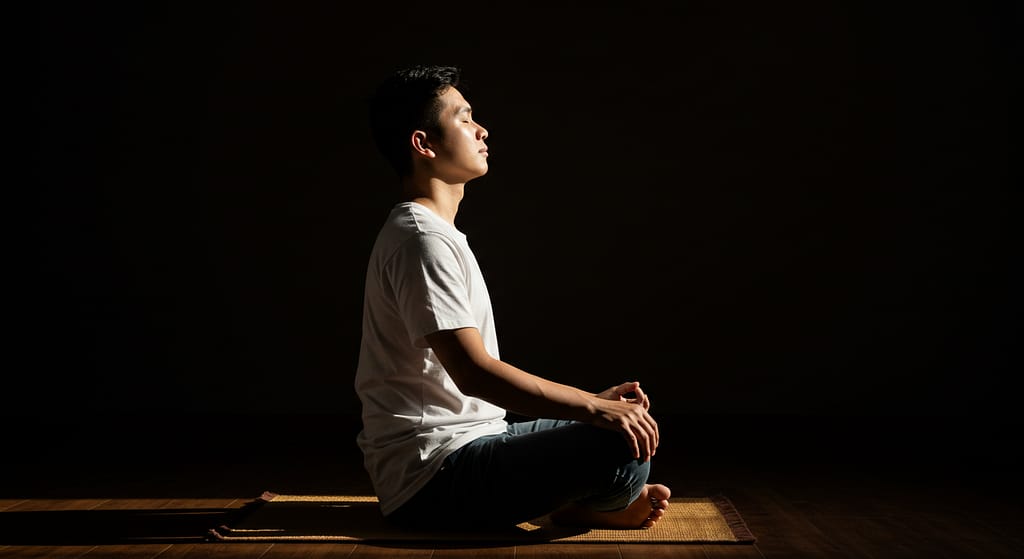Table of Contents
- Introduction: Stop Anxiety Attacks Before They Control You
- What Is an Anxiety Attack?
- What Causes Anxiety Attacks?
- Common Symptoms of Anxiety Attacks
- Diagnosis: Is It Anxiety or Something Else?
- How to Stop Anxiety Attacks Naturally
- Lifestyle Changes to Support Anxiety Management
- Your Next Step Toward Peace
- Conclusion
Introduction: Stop Anxiety Attacks Before They Control You
Anxiety attacks can be terrifying, overwhelming, and confusing—especially if you don’t understand what’s happening in your body. Learning what anxiety attacks are, recognizing their symptoms, and taking proactive steps toward treatment empowers you to stop anxiety from ruling your life.

External resource: Anxiety and Depression Association of America provides trusted information and tools for managing panic attacks.
What Is an Anxiety Attack?
Many people mistake anxiety attacks for heart problems or other medical emergencies. Also called panic attacks, these episodes involve sudden surges of intense fear or discomfort without warning, often triggered by perceived danger that isn’t real.
Recognizing that these sensations are part of an anxiety response helps neutralize their intensity and regain control.
What Causes Anxiety Attacks?
Anxiety attacks can stem from multiple sources. Common causes include:
- Past trauma or unresolved childhood fears
- High stress levels or burnout
- Major life changes (divorce, job loss, relocation)
- Hormonal imbalances or medical conditions
- Lack of physical activity or poor lifestyle habits
- Certain medications or stimulants (like caffeine or energy drinks)
At its core, an anxiety attack is your body responding to perceived threats—even when no real danger exists.
Common Symptoms of Anxiety Attacks
Physical and emotional signs may appear suddenly and can include:
- Racing heartbeat or chest pain
- Shortness of breath or hyperventilation
- Dizziness or lightheadedness
- Sweating or trembling
- Nausea or stomach tightness
- Feeling detached from reality
- Intense fear or sense of impending doom
Understanding these symptoms is the first step to regaining control and preventing escalation.
Diagnosis: Is It Anxiety or Something Else?
Because anxiety symptoms can mimic heart, thyroid, or neurological issues, a professional medical evaluation is essential. A proper diagnosis helps:
- Rule out serious medical conditions
- Confirm the presence of anxiety or panic disorders
- Establish a personalized treatment plan
Consulting a qualified healthcare provider ensures you’re addressing the root cause safely.
How to Stop Anxiety Attacks Naturally
Natural methods can be highly effective in managing anxiety and preventing attacks:
- Deep Breathing Techniques:
- 4-7-8 breathing or box breathing helps slow heart rate and calm the nervous system.
- Grounding Exercises:
- Use the 5-4-3-2-1 sensory method to anchor yourself to the present moment.
- Cognitive Behavioral Therapy (CBT):
- CBT rewires thought patterns to reduce anxiety triggers.
- Mindfulness and Meditation:
- Daily mindfulness practice and meditation increase awareness and emotional regulation.
- Journaling:
- Writing about your thoughts, feelings, and gratitude shifts perspective away from anxiety.
- Lifestyle Adjustments:
- Limit caffeine, alcohol, and sugar, and maintain a healthy daily routine.
Lifestyle Changes to Support Anxiety Management
In addition to natural techniques, consistent lifestyle habits support long-term anxiety control:
- Balanced nutrition and proper hydration
- Regular physical exercise
- Sufficient sleep and consistent sleep schedule
- Avoiding overstimulation from media and social platforms
- Creating calming rituals, such as reading, yoga, or evening walks
Integrating these habits reinforces coping mechanisms and reduces the frequency and intensity of attacks.
Internal links: Consider linking to blogs like Stressful Moments Coping or Tips to Eradicate Depression for readers seeking complementary strategies.
Your Next Step Toward Peace
Millions of people experience anxiety, but many recover with education, practice, and support. You are not alone.
Start small:
- Practice breathing exercises daily
- Incorporate mindfulness or meditation
- Reach out to supportive friends, mentors, or mental health professionals
By taking proactive steps, you regain control and reduce the impact of anxiety attacks.
Conclusion
Stop anxiety attacks before they control your life. With awareness, natural techniques, lifestyle adjustments, and professional guidance when needed, anxiety becomes manageable rather than overwhelming.
You have the tools, the knowledge, and the strength to reclaim peace and confidence—one step at a time.
